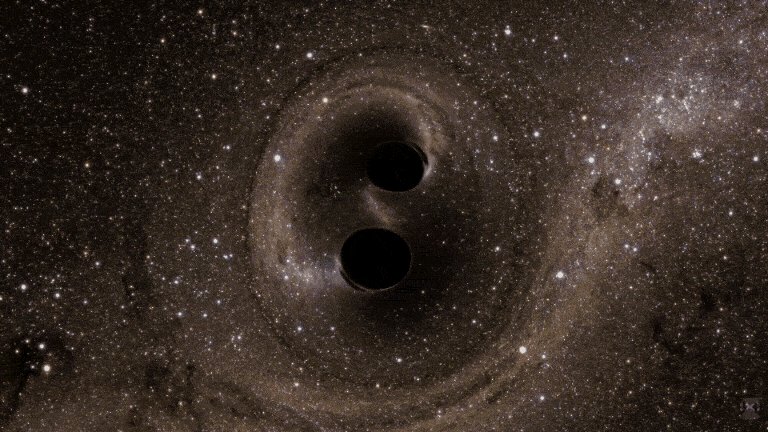Why fad diets don't work, according to experts
Fad diets may provide a quick fix, but they're not a long term solution.

Get the world’s most fascinating discoveries delivered straight to your inbox.
You are now subscribed
Your newsletter sign-up was successful
Want to add more newsletters?

Delivered Daily
Daily Newsletter
Sign up for the latest discoveries, groundbreaking research and fascinating breakthroughs that impact you and the wider world direct to your inbox.

Once a week
Life's Little Mysteries
Feed your curiosity with an exclusive mystery every week, solved with science and delivered direct to your inbox before it's seen anywhere else.

Once a week
How It Works
Sign up to our free science & technology newsletter for your weekly fix of fascinating articles, quick quizzes, amazing images, and more

Delivered daily
Space.com Newsletter
Breaking space news, the latest updates on rocket launches, skywatching events and more!

Once a month
Watch This Space
Sign up to our monthly entertainment newsletter to keep up with all our coverage of the latest sci-fi and space movies, tv shows, games and books.

Once a week
Night Sky This Week
Discover this week's must-see night sky events, moon phases, and stunning astrophotos. Sign up for our skywatching newsletter and explore the universe with us!
Join the club
Get full access to premium articles, exclusive features and a growing list of member rewards.
People who want to lose weight are often tempted to try one of the latest fad diets that are popular for a brief time and claim to help people shed pounds fast. But what is a fad diet? And do they actually help people lose weight long term?
Kara Burnstine, a registered dietitian at the Pritikin Longevity Center in Florida, told Live Science that a fad diet is defined as a "quick-fix way to lose weight that's usually popular for a short time and then fades away."
Another tell-tale sign of a fad diet, she said, is that claims of its success in helping people lose weight are mainly based on anecdotal reports.
"These diets don't usually have a lot of scientific evidence to back them up — they're based more on testimonials," she said. "You may see influencers touting benefits that appear too good to be true, which is often how these diets gain traction."
Weight loss can be tough, and with promises of rapid transformation, it's easy to see why these diets are so popular. They offer an easy solution to a complex problem, often promising quick results.
But fad diets don't work in the long term. Here, we'll delve into the science behind them to explore why. If you are thinking of making significant changes to your diet, however, make sure to consult a dietitian or a doctor first.
Why don't fad diets work?
The reason why fad diets appear to work initially is because they tend to significantly cut calories or entire food groups, Burnstine said, so people usually eat fewer calories or limited portions of certain foods. This puts the body in a calorie deficit, where a person consumes fewer calories than they burn, which leads to weight loss.
Get the world’s most fascinating discoveries delivered straight to your inbox.
However, the results are often short-lived because the diet is unsustainable as a lifestyle, Burnstine said. This can explain why most people regain the weight they've lost when they go back to their usual way of eating.

Fad diets also limit food groups that may be needed for essential nutrients, Burnstine said. Commonly restricted food groups include dairy and carbohydrates, according to the British Dietetic Association. Dairy is a good source of protein and calcium, while carbohydrates are needed for energy, as well as B-vitamins and magnesium.
Fad diets may also promote eating mainly one type of food — for example, the cabbage soup diet — or avoiding all cooked foods.
Wesley McWhorter, a registered dietitian in Texas and a national spokesperson for the Academy of Nutrition and Dietetics, told Live Science that “most fad diets remove entire food groups (fruits, vegetables, grains, etc.) or are extremely restrictive, reinforcing a negative relationship with food.”
"The biggest problem [with fad diets] is the shame-based rhetoric that blames the failure [to lose weight] on a lack of willpower — which we know is simply not true," McWhorter said. "There are many factors involved in why, what, and how we choose to eat. It is important to consider those issues to help us make sustainable changes."

McWhorter is the director of lifestyle medicine for Suvida Healthcare and is an advisory council member for the Teaching Kitchen Collaborative, a nonprofit global network. McWhorter graduated from the Florida Culinary Institute and earned a bachelor's degree from Kansas State University, a master's degree from the University of Texas Medical Branch and a doctorate from the University of Texas Health Science Center School of Public Health.
A 2020 review published in the journal Cureus also linked dieting with an increased likelihood of disordered eating. While it is difficult to draw any substantial conclusions from the data, the researchers said, results showed that dieting may carry more risks than benefits as a means of losing weight.
Whole lifestyle approach
Ultimately, Burnstine said, weight loss requires a long-term approach.
"It's not sexy or trendy, but good old-fashioned hard and consistent work is what drives sustainable weight loss," she said. "It's not about quick fixes — slow and steady wins the race."
Sustainable weight loss requires a whole lifestyle approach rather than focusing on food alone. Many fad diets overlook the role of exercise, which is vital for optimal health. These diets also frequently ignore other important factors, according to Burnstine.
"Psychology is involved as well," said Burnstine. "You need to know which foods may derail efforts with emotional eating. Getting proper sleep is also very important for sustainable weight loss. Lack of sleep can cause increased cortisol levels [the stress hormone] which may drive hunger."
According to McWhorter, a healthy diet for the long haul needs to fit into the rest of a person’s life too.
"Remember, any dietary change has to be enjoyable to be sustainable, so focus on including foods that you like and that work with your food culture and family," McWhorter said.
Louise Bond is a UK-based writer specializing in health and wellbeing. She has over eight years of experience in management within health and care and brings this passion and expertise to her writing. Louise has been published in The Guardian, Planet Mindful and Psychreg among others. She is at her happiest when she is out in nature, whether that’s on an invigorating hike or pottering in the garden.
 Live Science Plus
Live Science Plus











